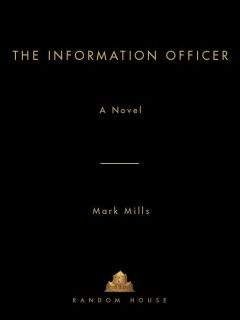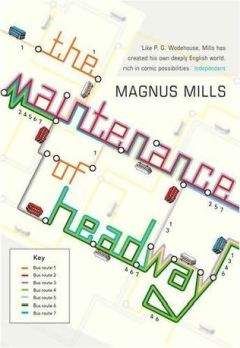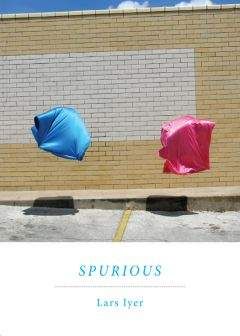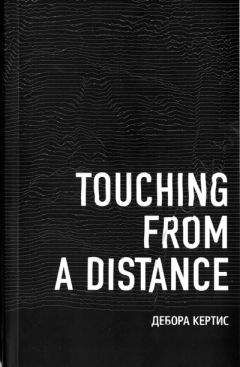Mark Mills - Amagansett
На электронном книжном портале my-library.info можно читать бесплатно книги онлайн без регистрации, в том числе Mark Mills - Amagansett. Жанр: Прочее издательство неизвестно, год 2004. В онлайн доступе вы получите полную версию книги с кратким содержанием для ознакомления, сможете читать аннотацию к книге (предисловие), увидеть рецензии тех, кто произведение уже прочитал и их экспертное мнение о прочитанном.
Кроме того, в библиотеке онлайн my-library.info вы найдете много новинок, которые заслуживают вашего внимания.

Mark Mills - Amagansett краткое содержание
Amagansett читать онлайн бесплатно
He stopped as he passed by the swimming pool.
Crouching down, he dipped his fingers into the water and raised them to his lips.
Seven
‘You’re early,’ said Dr Hobbs, dropping the liver on to the tray of the hanging scales with a loud slap.
‘I just wanted to make sure the paperwork’s in order before the family get here,’ lied Hollis.
‘Five pounds, four ounces,’ said Hobbs, reading off the weight of the organ to his assistant who was taking notes at a table. A sign on the wall read: This is the Place Where Death Rejoices to Teach Those Who Live. The maxim was accompanied by an image of the Grim Reaper standing beside a blackboard, scythe in one hand, stick of chalk in the other.
The cadaver on the autopsy table was that of an elderly woman. Her large breasts, laced with veins, were splayed across her torso, hanging down over her arms so that they gathered on the enameled surface like wax at the base of a candle. There was a gaping Y-shaped hole in her abdomen where Dr Hobbs had been at work.
Hollis’ natural curiosity drove him towards the body, Dr Hobbs evidently intrigued by his lack of squeamishness. ‘Want to hazard a guess at the cause of death?’ he asked.
Hollis glanced at the weighing scales. ‘The shape of the liver, its color, weight…’
‘Its weight?’
‘Almost twice as heavy as it should be.’
Dr Hobbs raised an eyebrow.
‘I don’t know,’ continued Hollis. ‘Liver failure brought on by chronic alcoholism? The contusions on her knees and forehead suggest she collapsed forward on to the ground; the lividity in her face and neck that she lay there for some time.’
Hollis regretted the words as soon as they had left his mouth. As a rule, he played his cards close to his chest, finding it far more advantageous to be underestimated by his colleagues and associates. It was a sign of how low he’d sunk that he felt the need to impress the likes of Dr Cornelius Hobbs.
‘Local woman, Anne Hamel, notorious lush,’ confirmed Hobbs, ‘bottle and a half of gin a day. Neighbor found her on the bathroom floor.’ He removed the liver from the scales. ‘I can see you’re something of a dark horse, Hollis. I’m going to have to keep my eye on you.’
Yes, he should have kept his mouth shut.
‘As for the paperwork on your girl,’ continued Hobbs, ‘I can’t complete the Death Certificate or body-release form before identification by next-of-kin. But then I figure you already know that, so you must be here to cast an eye over the autopsy report.’
Hollis shrugged. ‘Just out of curiosity.’
‘Go ahead, it’s on my desk, last office on the right down the hall.’ Hobbs couldn’t resist a parting shot as Hollis left through the swing doors. ‘You’ll let me know if I missed anything.’
The office was small, immaculately tidy, with windows on to the parking lot at the side of the building. There were graduation photos of two youngsters on the desk—gowns and caps, black tassels dangling—instantly recognizable as Hobbs’ son and daughter, something that must have been a source of considerable consternation to the girl.
The autopsy report sat beside the phone, a sheet of ruled paper pinned to the front on which someone, Hobbs presumably, had written in a neat, cursive hand: Lillian Wallace (to be confirmed). Death by Misadventure: death from drowning.
Hollis settled into the chair at the desk and picked up the report. He paused a moment before starting to read. What was he looking for? He wasn’t sure. Maybe he was still grasping at straws. He admonished himself for thinking that way, cleared his head and started again. Discrepancies. Yes, discrepancies between the report and what little he knew of Lillian Wallace and the last hours of her life.
The few scraps he had to work with had been provided by the maid, Rosa, the previous day. After breaking the news, Hollis had sat with her for ten minutes while she tried to choke back the shock and grief, tears pouring down her face.
When her sobbing had subsided, he gently prized his hand free of hers and went and made a cup of tea for her. She joined him in the kitchen, a room larger than the footprint of his whole house, with a cathedral-cold stone floor. They sat at a table and she answered his questions while he took notes in his memo pad.
Lillian Wallace had been twenty-six years old, the youngest child of George and Martha Wallace, sister to Gayle and Manfred. Her mother had died four years previously from a cancer of the throat. Her father had not remarried. Ordinarily, Lillian lived at her apartment in New York, but she had been staying at the house in East Hampton since January, following a separation from her fiancé, the engagement broken off.
When asked if Lillian was depressed, Rosa replied that she’d been very low at first, but within a month or so she was her old self again—spirited, full of life and humor. She said this in such a way as to warn him off the notion that Lillian might have taken her own life.
For much of the time Lillian had been alone in the house. Rosa lived with her husband and three children on the other side of town and only stayed in the house on Friday and Saturday nights during the season, when the whole family came out for the weekend. Since Lillian had taken up residence though, Rosa would come in for a few hours every morning to air the rooms, clean a little, make Lillian’s bed, and prepare an evening meal for her.
Lillian kept herself pretty much to herself during the week, although Rosa said she played tennis with friends at the Maidstone Club every now and then. She read a lot, walked a lot, and swam whenever she could, in the swimming pool out back and in the sea.
Her evening dip in the ocean had been an established ritual. Even weekends, when her family was around, while the others indulged in pre-prandial cocktails on the terrace Lillian would head off to the beach, out of the back gate in the garden and across the dunes. Rosa’s eyes misted over again as she described this daily pilgrimage, the one that Lillian had never returned from.
Hollis had asked if he could take a look at Lillian’s bedroom, and Rosa accompanied him upstairs. He would have preferred to inspect the room on his own, taking his time, but Rosa loitered protectively at the door.
There was nothing overtly feminine about the room, very little besides the clothes in the closet to suggest the gender of its occupant. The walls were painted cream and were hung with prints and etchings—a cart passing down a country lane, Montauk Lighthouse, an abstract female nude by some well-known European artist whose name Hollis couldn’t recall.
On the wall beside the bed was a framed photo showing a group of young women gathered on a stage. The caption on the matt read: The Experimental Theatre, Vassar College 1942. Lillian Wallace stood out like a beacon, her beauty and the breadth of her smile animating the photo, lending life to those around her. The image was in stark contrast to Hollis’ first sight of her, face frozen with rigor mortis, pinkish foam oozing from her blue lips.
He was left in little doubt as to what she had studied at Vassar. The shelves of a mahogany bookcase bowed under the weight of volumes of English and French literature, and there were more books stacked on the desk in front of the window. Hollis’ eyes grazed over the clutter on the desk, looking for a suicide note. Despite Rosa’s assertions, he didn’t dismiss the possibility that Lillian Wallace had taken her own life.
There was no note, not on the desk, not on the nightstand, not in any of the drawers in the room. This didn’t rule out suicide. Relatives or friends sometimes destroyed the suicide note of their loved ones. Sometimes this was done for simple, if misguided, reasons of decency. On other occasions it was no doubt done to protect themselves.
There was no denying the genuineness of Rosa’s grief, but it didn’t preclude her discovery of a note that morning when she had come to work. And as Hollis picked his way around the room, he was able to construct an alternative sequence of events—Rosa’s horror on finding the note, the anxious hours spent waiting, praying that Lillian wouldn’t see it through, that she would turn up, then the dashed hopes when he had appeared on the doorstep, the subsequent surge of emotion in Rosa indistinguishable from genuine surprise, and no less authentic.
This could also explain what Rosa was doing at the house at three o’clock in the afternoon when by her own account she only ever came in for a few hours in the morning.
‘Have you touched anything in here?’ he asked.
‘No.’
‘So the bed was already made?’
‘Yes.’
‘Did that strike you as strange?’
‘Strange?’
‘You say you make her bed every morning. You come in one day and it’s already made. Has it ever happened before?’
Rosa hesitated before replying. ‘No.’
‘So you must have been a little…surprised.’
‘Yes,’ she said, regarding him mistrustfully. Her mind was working hard, too hard.
There was a door in the corner of the room. Behind it lay a bathroom, painted pale blue. There were some cosmetics on the glass shelf above the basin, nothing elaborate. Across the room, a linen skirt and a white blouse lay neatly folded on a wicker chair, a pair of leather sandals on the floor nearby.
Sensing Rosa behind him in the doorway, he spoke without turning.
‘This is where she would have changed?’
‘Yes.’
‘Are these the clothes she was wearing yesterday?’
‘Yes.’
Hollis lifted the lid of a laundry hamper. It was empty. ‘Did she wear a brassiere?’ Rosa, understandably, was a little put out by the question. ‘I’m just wondering where her undergarments are. They’re not on the chair, not in the laundry hamper.’
‘They were in the hamper. I emptied it this morning.’
Hollis ran the scene in his head. It’s early evening, Lillian comes into the bathroom, she removes her clothes—first her blouse, then her skirt—folding them before placing them on the chair. She then takes off her brassiere and panties and puts them in the laundry hamper. Now she pulls on her dark blue swimsuit.
‘The times you saw her leaving for her swim, what was she wearing?’
‘A bathrobe.’
‘Shoes?’
Rosa thought before replying. ‘No.’
‘Did she take a towel?’
‘I think so. Yes.’
‘And jewelry?’
‘Jewelry?’
‘Earrings, for example, did she keep them in or take them out?’
‘Why are you asking me all these questions?’ Her eyes were filling with tears again.
‘I’m sorry, it’s routine procedure.’
‘She didn’t wear jewelry.’
‘Never?’
‘Special occasions.’
Well, death was certainly a special occasion.
‘One more question, Rosa. What are you doing here midafternoon? You said before you only come in for a few hours in the morning.’ He felt bad springing this on her, given her state, but he had to know the answer.
‘I wasn’t worried at first,’ she said defensively. ‘I thought…I thought maybe she went out last night.’
‘And didn’t come back? Stayed out? With someone?’
‘You know how the young people are these days.’
It bugged him that she chose to include him with her in the ranks of the elderly.
‘I went home,’ she continued, ‘I made lunch for my family. Then I couldn’t stop thinking…’ She broke off, gathering herself. ‘Maybe she never came back from her swim.’
‘So you headed back here.’
‘She always leaves her swimsuit there, with the bathrobe.’ She pointed to a hook on the back of the bathroom door. ‘I should have looked earlier, I wasn’t thinking, I should have looked…’ She started to cry again.
‘It wouldn’t have made any difference,’ said Hollis gently. He made to rest a hand on her shoulder, but she hurried away, across the bedroom and out of the door, deep sobs resounding in the corridor. He didn’t blame her for evading his touch; he had brought her to tears again with his persistent questioning, the mildly accusatory tone designed to unsettle, to dislodge the truth.
Well, at least he was able to throw out the theory of a missing suicide note. The deep affection Rosa clearly felt for her young mistress wouldn’t have allowed her to return home to make lunch for her family if she’d discovered such a note that morning. He couldn’t see it, it just didn’t fit.
He turned back and surveyed the bathroom. Everything in order, as it should be, nothing that might lend weight to his gut feeling that Lillian Wallace’s death wasn’t an accident.
Feeling foolish, his heart already going out of the matter, he crossed to the sink, filled his cupped hands with cold water from the faucet and drank, splashing his face as he did so. He caught sight of himself in the mirror, and disliked what he saw staring back at him—a nondescript man, brown hair, brown eyes, average height—no distinguishing features besides a strong inclination to see the very worst in situations and in people. To question what most were happy to take in good faith. To doubt where others trusted.
And to what end? Not in the name of Justice; that was a lofty notion he had abandoned within a year of leaving the Academy. He knew that the true injustices in life lay far beyond the scope and remit of the police. They were merely flies buzzing around the dung heap, giving some semblance of order and activity.
No, he was as he was because he was good at it, because that’s what he did best. And for the first time in his career he’d seen with blinding clarity that it was no longer enough of a reason to carry on doing it.
Casting his mind back to Lillian Wallace’s bathroom, it occurred to Hollis that he wouldn’t even be there, seated at Hobbs’ desk in the morgue, if he hadn’t wet his face with water at her sink. It was in the nature of destiny that you could trace your own back to the very smallest events.
Searching for a towel, he had spotted one hanging from a rail in the recess that housed the bath. Wandering over, he saw that there was also a toilet in the recess.
Only after he had dried his face and replaced the towel did it leap out at him: the wooden seat of the toilet was raised, suggesting that the last person to use it had been a man.
Hollis finally opened the autopsy report and started to read. He made notes; to ask for a copy would only alert others to his interest in the affair.
The first section dealt with the external examination. In describing the general appearance of the corpse, Hobbs began by stating that rigor mortis was well established, suggesting a time of death somewhere between six and twenty-four hours previously. Starting at the head and working his way down the body, he noted small conjunctival hemorrhages in the eyes (green, as Hollis had guessed). These were evidence of asphyxiation, though not necessarily by water. The pinkish foam exuding from the mouth and nostrils, however, was strongly indicative of drowning, and led Hobbs to opine that the victim had been alive at the time of submersion.
The report then turned to the abrasions over the prominent parts of the face and the anterior trunk. Apparently this was concomitant with drownings off the ocean beach. Hollis read on, intrigued. He knew that when a person drowned they soon sank to the bottom where they remained until putrefaction filled their belly with gases that refloated them. He wasn’t aware that the submerged corpse always lay suspended in the same position—face down with the head lower than the rest of the body. The abrasions were the result of Lillian Wallace’s face and upper torso scraping along the sandy sea-bed as the currents carried her to and fro. The downward angle of the body also accounted for the faint and blotchy lividity in the head, neck and anterior trunk.
Похожие книги на "Amagansett", Mark Mills
Mark Mills читать все книги автора по порядку
Mark Mills - все книги автора в одном месте читать по порядку полные версии на сайте онлайн библиотеки My-Library.Info.




